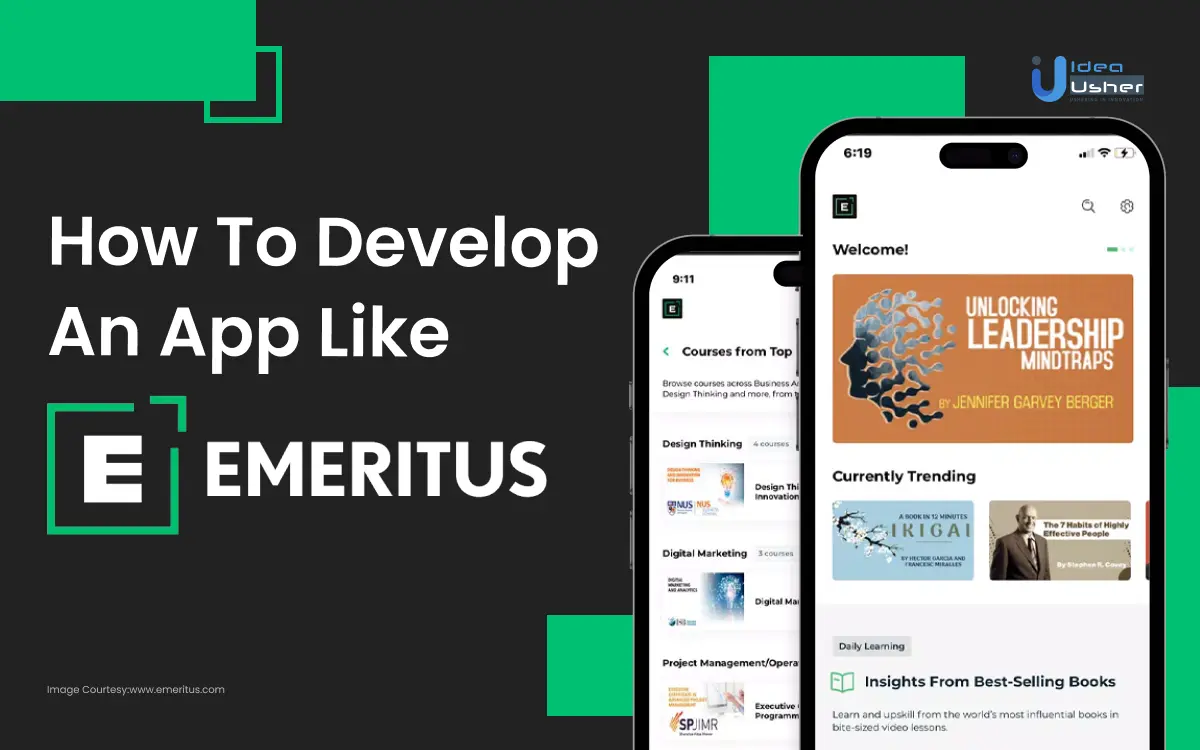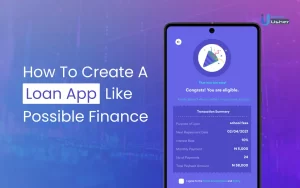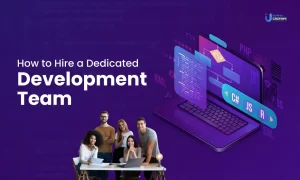Developing an online learning app like Emeritus is not just a feat of technological prowess; it’s a transformative journey towards democratizing knowledge.
This comprehensive guide will guide you through the development of an online learning app like Emeritus, illuminating the path to create a learning platform that resonates with users, empowers learners, and revolutionizes the way we absorb information.
Read on as we explore the step-by-step process, from ideation to execution, on how to manifest your vision of an impactful and user-centric learning app, making education accessible to all.
What is Emeritus?
The Emeritus online learning app is like a super useful tool for folks in tech and other jobs. It’s on your phone, and it helps you learn lots of cool stuff when you’re super busy. You get short videos from really smart people at big universities like MIT and Columbia, so you can learn without spending hours. They teach you about lots of things like data science, cybersecurity, and making computer programs.
The app also has stories and tips from famous tech folks like Tim Cook and Elon Musk, which can inspire you every day. You can even make your own collection of stuff you find super helpful. And it’s not just for one person; big companies can use it to teach their workers too.
Basically, Emeritus is a way to learn new things and get better at your job without it being hard or boring.
How Does Online Learning App Like Emeritus Work?
The rise of online learning platforms like Emeritus has reshaped the way we acquire knowledge, transforming it into a user-friendly experience available at our fingertips. But what’s the secret behind this educational revolution? Let’s explore the inner workings of these platforms:
1. Curating Premium Content:
Emeritus collaborates with top-notch universities and industry experts to craft what they call Small Private Online Courses (SPOCs). These courses are designed to bring together small groups of learners, fostering engagement and peer learning. You get access to various content formats—from polished video lectures to interactive activities and real-world case studies. The emphasis is on practical skills that directly apply to professional scenarios.
2. Blending Learning Styles:
Emeritus strikes a smart balance between live and pre-recorded learning. You can watch recorded lessons at your own pace, fitting learning into your schedule. But it’s not all solo study—there are also live sessions where you can interact with respected instructors, ask questions, and join discussions. This mix caters to different learning preferences and ensures an engaging experience.
3. Community and Connections:
Learning isn’t just about absorbing information; it’s about building relationships. Emeritus fosters a lively online community through forums, group projects, and social gatherings. Here, you can connect with fellow learners, share insights, and gain from diverse perspectives. Many graduates continue to benefit from the network they built during their courses, establishing lasting professional ties.
4. Fueling Career Growth:
Emeritus understands that learning is linked to career advancement. They provide tailored career support, including resume workshops, mock interviews, and networking opportunities. Plus, they partner with major companies, offering exclusive job placements to their graduates.
5. Technology at the Core:
The Emeritus app serves as a centralized hub for learning materials, schedules, and communication tools. It’s user-friendly, allowing easy navigation and progress tracking. Additionally, AI-driven features offer personalized recommendations and adaptive learning paths, enhancing the learning experience.
Online Learning Apps: Market Growth Rate
The online learning apps market is poised for significant expansion, projected to surge at an annual growth rate of 8.33% (CAGR 2024-2028). This robust trajectory forecasts a substantial leap, anticipating a market volume soaring to US$4.49 billion by 2028. Forecasts also predict a substantial surge in user adoption within the United States, with an estimated 60.3 million users expected to engage with online learning platforms by 2028.
Source: Statista
These statistics underscore a burgeoning trend, reflecting the increasing embrace of digital education and the rising demand for accessible and flexible learning solutions in the years to come.
Must-Have Features for an Online Learning App Like Emeritus
Developing a stellar app like Emeritus demands an amalgamation of cutting-edge features that not only meet but exceed the evolving needs of learners. Here’s a rundown of the quintessential features that define a robust online learning platform:
1. Vast Video Library:
Accessing over 5000 bite-sized video lessons is the cornerstone of a comprehensive learning experience. These lessons, refreshed with 200+ additions every week, ensure learners stay abreast of the latest insights and trends in their respective fields.
2. Exclusive Harvard Business Review Content:
The inclusion of exclusive content from renowned sources like the Harvard Business Review elevates the learning experience, providing learners with unparalleled access to premium knowledge and expertise.
3. Learning On-Demand:
An imperative feature is the ability to learn on-demand from world-leading professionals, enabling learners to upskill precisely when they need it. This feature caters to the fast-paced demands of various professions.
4. Workshops with Subject Matter Experts:
Interactive workshops hosted by subject matter experts through Insights LIVE foster engaging discussions and offer invaluable firsthand knowledge from seasoned professionals.
5. Access to Top Universities:
Collaborations with esteemed institutions such as Columbia Business School, MIT, Wharton, and others signify a commitment to delivering high-quality, reputable education to learners.
6. Insights from Best-Selling Books and Thought Leaders:
Extracting insights from best-selling books by renowned authors and thought leaders like Adam Grant, Tim Ferris, Ruth Bader Ginsburg, Jeff Bezos, and more enriches the learning journey with diverse perspectives and wisdom.
7. Personalized Insights Library:
Enabling learners to curate their insights library by saving and organizing the most inspiring content facilitates easy reference and continuous learning.
8. Social Sharing Capabilities:
Empowering learners to share valuable insights with their network fosters collaborative learning and leadership within their peer group.
In essence, a feature-rich online learning app like Emeritus is not merely a repository of educational content; it’s a dynamic ecosystem meticulously designed to provide learners with a multifaceted, personalized, and immersive learning experience.
Benefits of Developing an Online Learning App Like Emeritus for Businesses
Certainly, creating an online learning app for businesses like Emeritus brings multifaceted advantages in today’s competitive corporate landscape. Let’s explore the pivotal benefits of fostering such a platform:
1. Laser-Focused Skill Development:
- Targeted Training: Pinpoint and address skill gaps within your workforce directly, ensuring that courses are precisely tailored to meet the company’s needs.
- Microlearning Modules: Break down complex topics into manageable, on-the-go modules. This approach accommodates busy schedules and fosters sustained engagement.
- Diverse Learning Formats: Incorporate interactive elements such as quizzes, simulations, and gamified learning to maintain employee interest and boost absorption of information.
2. Heightened Productivity and Retention:
- Performance Improvement: Equipping employees with the right skills enhances decision-making, problem-solving, and overall task execution, leading to increased productivity.
- Enhanced Morale and Engagement: Offering opportunities for professional development creates a sense of value and commitment among employees, resulting in reduced turnover and heightened engagement.
- Scalability and Accessibility: Overcome geographical barriers by training employees across various locations and time zones, fostering a globalized and connected workforce.
3. Cost Efficiency and ROI:
- Trimmed Training Costs: Online learning platforms eliminate expenses associated with in-person training, including travel and venue costs, presenting a cost-effective alternative.
- Improved Knowledge Retention: Interactive platforms bolster knowledge retention, reducing the need for repetitive training and enhancing employee value.
- Quantifiable Progress: Detailed analytics allow for the measurement of employee progress and course completion rates, facilitating ongoing improvements and adjustments to training programs.
4. Competitive Edge and Employer Branding:
- Attracting Top Talent: Offering a robust learning platform sets a business apart as an employer invested in employee growth, attracting top-tier talent.
- Fostering Innovation: Peer-to-peer learning and collaboration foster a culture of innovation, leading to breakthrough ideas and improved business outcomes.
- Enhanced Brand Image: Investing in employee development showcases a commitment to nurturing a learning-centric culture, enhancing the company’s reputation among customers and investors.
Creating an online learning app tailored to your business isn’t merely about training—it’s an investment in your company’s future. By empowering employees with relevant skills and knowledge, businesses cultivate a force for innovation, productivity, and sustainable growth.
How to Develop an Online Learning App Like Emeritus?
Diving deeper into the development-centric approach to creating an online learning app akin to Emeritus involves specific technical considerations and unique strategies:
1. Tech Stack Selection:
Choose the right technology stack based on scalability, user experience, and platform compatibility. Opt for frameworks like React Native or Flutter for cross-platform app development, ensuring a seamless experience across devices.
2. Backend Infrastructure:
Develop a robust backend infrastructure utilizing cloud services like AWS or Azure for scalability and reliability. Implement secure APIs to handle data interactions, ensuring seamless integration with third-party tools and content repositories.
3. Content Management System (CMS):
Build a versatile CMS allowing easy content creation, curation, and management. Utilize advanced content delivery networks (CDNs) for efficient content distribution and streaming.
4. Interactive Learning Features:
Implement interactive elements like real-time quizzes, augmented reality (AR)/virtual reality (VR) simulations, and personalized learning paths using machine learning algorithms. This enhances engagement and personalization for users.
5. Analytics and Reporting:
Integrate robust analytics tools to track user behavior, course completion rates, and engagement metrics. Leverage this data to optimize content, improve user experience, and drive informed decision-making.
6. Community Building Tools:
Develop community-centric features such as discussion forums, group projects, and social networking capabilities within the app. Use machine learning to facilitate personalized connections and discussions among users.
7. Payment Gateway Integration:
Implement secure payment gateways for subscription models or course purchases. Ensure a smooth payment experience while prioritizing data security and compliance with industry standards.
8. Gamification Elements:
Integrate gamification elements like badges, leaderboards, and rewards to incentivize learning and foster healthy competition among users, boosting engagement and retention rates.
9. Testing and Iteration:
Conduct thorough testing across devices, browsers, and operating systems to ensure a bug-free experience. Continuously gather user feedback and iterate on features to enhance usability and functionality.
10. Scalability and Maintenance:
Design an architecture that allows for easy scalability as user numbers grow. Implement routine maintenance protocols to ensure smooth operation, regular updates, and security patches.
These development-centric steps focus on the technical intricacies involved in creating a robust online learning platform.
Essential Tech-Stack Needed to Develop an Online Learning App Like Emeritus
Developing an online learning app like Emeritus demands a robust tech stack that ensures scalability, seamless user experience, and innovative features. Here’s a breakdown of the essential components needed:
Frontend Development:
- React Native or Flutter: These cross-platform frameworks facilitate faster development and ensure a consistent user experience across various devices and operating systems.
- JavaScript (ES6+): Leveraging the latest JavaScript standards enables efficient and maintainable frontend coding.
- HTML5 and CSS3: The foundation of web development, HTML5, and CSS3, ensure responsive design and intuitive user interfaces.
Backend Infrastructure:
- Node.js: Ideal for building scalable and high-performing server-side applications, Node.js is well-suited for handling real-time interactions and concurrent requests.
- Express.js: A minimal and flexible Node.js framework that simplifies building robust APIs and web applications.
- MongoDB or PostgreSQL: Choose a database solution based on your app’s requirements. MongoDB offers flexibility for document-based storage, while PostgreSQL provides robust relational database management.
Cloud Services and Deployment:
- Amazon Web Services (AWS) or Microsoft Azure: These cloud platforms offer a suite of services for scalable hosting, storage, and computing resources.
- Docker and Kubernetes: Containerization and orchestration tools like Docker and Kubernetes streamline deployment, ensuring consistency across various environments.
Content Management and Streaming:
- Content Delivery Networks (CDNs): Utilize CDNs for efficient content delivery and streaming, reducing latency and improving user experience.
- APIs for Video Streaming: Implement APIs like Vimeo or JW Player for seamless video streaming capabilities within the app.
Analytics and Reporting:
- Google Analytics or Mixpanel: Integrate robust analytics tools to track user behavior, engagement metrics, and course completion rates.
- Data Visualization Libraries: Use libraries like D3.js or Chart.js for presenting insights and data visualization within the app.
Security and Authentication:
- JSON Web Tokens (JWT): Implement JWT for secure authentication and authorization of users.
- SSL/TLS Certificates: Ensure secure data transmission over the network by implementing SSL/TLS certificates.
Top Examples of Online Learning Apps Like Emeritus
Here’s a glimpse into some leading examples of online learning apps like Emeritus:
Coursera:
Renowned for its extensive course catalog, Coursera collaborates with prestigious universities like Stanford, Yale, and MIT. It spans diverse fields such as business, computer science, and data science, offering specializations, certificates, and degrees.
edX:
Similar to Coursera, edX partners with top-tier institutions like Harvard, MIT, and Berkeley. Focused primarily on STEM subjects, it also extends into business, humanities, and social sciences, providing a wide array of courses.
Udemy:
Boasting a vast library of user-generated content, Udemy covers an expansive range of topics including programming, marketing, design, photography, and personal development. Its diverse course offerings and flexible learning options cater to a broad audience.
Skillshare:
Emphasizing creative skills, Skillshare offers short, project-based classes led by industry professionals in illustration, design, photography, and writing. It fosters a vibrant community for learners to engage and collaborate.
MasterClass:
Distinguished by its roster of celebrity instructors and experts, MasterClass provides insight into various fields. From Martin Scorsese teaching filmmaking to Gordon Ramsay sharing culinary expertise, it offers a unique glimpse into the minds of successful individuals.
Conclusion
As we conclude this guide to crafting an app akin to Emeritus, remember: innovation in education isn’t confined to classrooms; it’s within the codes, designs, and experiences we craft. The journey to develop a learning platform demands meticulous planning, technological finesse, and a deep understanding of user needs. Embrace the evolution of education, weaving together robust tech stacks, engaging content, and vibrant communities. Your app isn’t just a product; it’s an opportunity to democratize knowledge, spark curiosity, and empower learners worldwide. So, embark on this odyssey, for the future of learning awaits your transformative touch.
Work with Ex-MAANG developers to build next-gen apps schedule your consultation now
What Idea Usher Brings to the Table?
At Idea Usher, our expertise lies in crafting dynamic learning platforms, as exemplified by our past success with AcceleratedX. With a diverse pool of industry experts, we curate top-tier lessons spanning music, culinary arts, sports, and technology. This one-stop destination offers users a multitude of video lessons and comprehensive learning experiences.
Leveraging our proven track record in building platforms like AcceleratedX, we’re poised to guide you in developing an online learning app akin to Emeritus.
Checkout the complete case study to witness how our expertise can shape your educational venture.
Frequently Asked Questions
1. What tech stack is ideal for building an online learning app like Emeritus?
Developing an app like Emeritus requires a robust tech stack. A combination of React Native or Flutter for cross-platform development, Node.js for the backend, and databases like MongoDB or PostgreSQL is recommended. Cloud services like AWS or Azure, along with content delivery networks (CDNs) for efficient content distribution, are also vital components.
2. How can I ensure a user-friendly interface and seamless navigation in the app?
Prioritize user experience (UX) and design. Implement intuitive navigation, clear information architecture, and responsive design principles. Conduct thorough user testing to gather feedback and iterate on interface elements to ensure a smooth and intuitive user journey.
3. What are the key features that should be integrated into an app like Emeritus?
Essential features include a diverse course catalog, interactive learning materials (videos, quizzes), live sessions with instructors, community engagement tools (forums, social features), personalized dashboards for users, and robust analytics for tracking user behavior and course progress.























